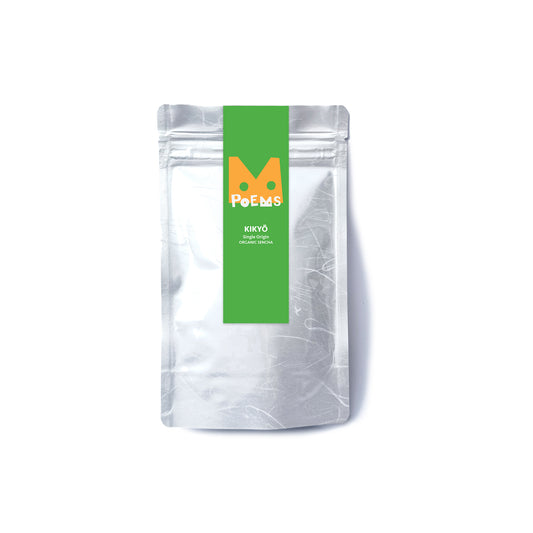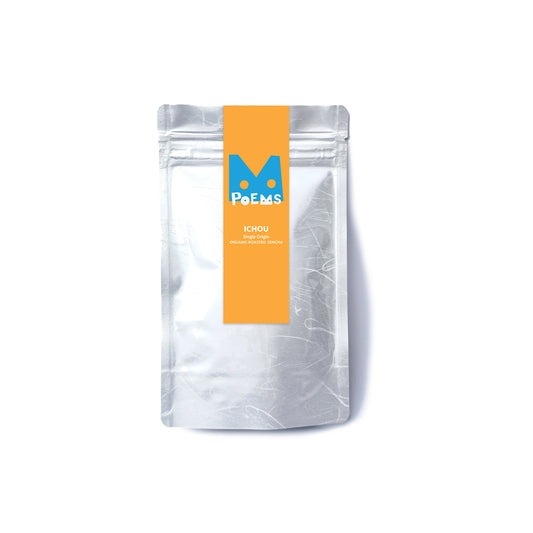
Is Tea good for me?
Share
A good tea is a powerful ally for your body. Beyond its irresistible taste and aroma, tea brings a whole lots of benefits for your body and mind. Whether you’re looking to feel more energised or just take a moment for yourself, tea has got you covered.
Tea delivers a steady energy boost without the crashes often associated with coffee thanks to its unique blend of Caffeine, L-theanine and Polyphenols.
Caffeine: The Natural, Sustained Boost
Tea’s caffeine is absorbed more slowly than coffee’s due to the presence of tannins, compounds that bind to caffeine and regulate its release into the bloodstream. This results in a gentler rise in energy levels and a longer-lasting effect (typically 3–6 hours, depending on the tea).
L-theanine: The Calming Companion
L-theanine is an amino acid found almost exclusively in tea plants. It promotes relaxation by increasing alpha brain wave activity, which is associated with a calm but alert mental state. This synergy with caffeine creates what’s often called “calm focus”, reducing the risk of energy crashes.
Recent studies confirm this effect, linking L-theanine and green tea consumption to better cognitive function. A 2022 study of 264 adults in China associated regular green tea consumption with improved executive function and memory, while a 2020 study found a link to a 64% lower chance of cognitive impairment.
Polyphenols: The Power of Antioxidants
Polyphenols are a group of bioactive compounds responsible for tea's antioxidant, anti-inflammatory, and antimicrobial properties.
- Catechins: Key contributors to tea's health benefits, particularly the potent antioxidant EGCG (epigallocatechin-3-gallate)
- Flavonoids: A broad category of polyphenols that improve overall cellular health and help fight free radicals
- Theaflavins and Thearubigins: Formed during oxidation, they have similar antioxidant and anti-inflammatory effects
These powerful antioxidants are a key reason why tea is linked to a number of health benefits.
Science-Backed Health Benefits
Beyond its calming energy, a good tea brings more to the table. Recent studies have highlighted its benefits for:
- Heart Health: A 2022 review suggests that regularly drinking green tea could help lower several risk factors for heart disease, including blood pressure and cholesterol levels
- Oral Health: A 2021 review found that the antioxidants in green tea may be linked to a decreased risk of tooth decay and improved gum health by inhibiting harmful bacteria
- Brain Health: The neuroprotective effects of catechins, including EGCG, may help reduce the risk of neurodegenerative diseases like Alzheimer's and Parkinson's
Our Tea Collections
Matcha
- Matcha offers the highest concentration of caffeine and L-theanine because you consume the entire powdered tea leaf, not just an infusion
- It provides a smoother, more sustained energy boost, often lasting 6–8 hours
- Matcha’s L-theanine content is particularly high due to the shading process used during cultivation, which increases the amino acid levels in the leaves
>> Our Premium Matcha Collection
Green Tea
- Green teas are also rich in L-theanine and provide a more moderate caffeine boost compared to matcha
- Gyokuro, like matcha, is grown in shade and contains higher levels of L-theanine than standard sencha
White Tea
- White tea has the lowest caffeine levels among traditional teas and moderate L-theanine, making it a lighter, more subtle option for calm energy
>> Our Organic Loose Leaf Tea Collection
The Calm energy
Tea's unique synergy of compounds results in a feeling of calm energy and improved focus.
- Improved Focus: The caffeine-L-theanine combination enhances cognitive function, focus, and memory without over-stimulation
- Stress Reduction: L-theanine reduces cortisol levels, helping to manage stress and promote relaxation
- Sustained Energy: Tea’s gradual caffeine release avoids energy crashes and keeps you feeling steady throughout the day




